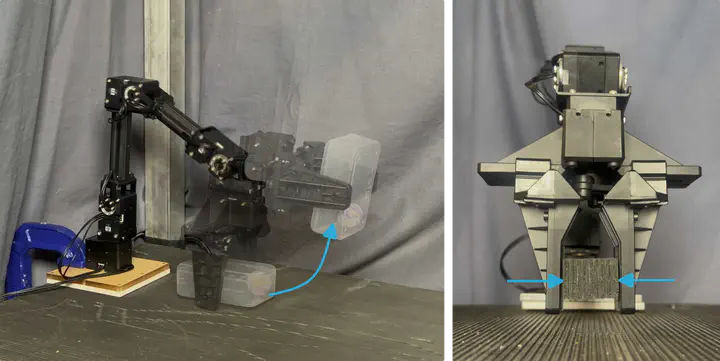Learning Object Properties Using Robot Proprioception via Differentiable Robot-Object Interaction

Abstract
Differentiable simulation has become a powerful tool for system identification. While prior work has focused on identifying robot properties using robot-specific data or object properties using object-specific data, our approach calibrates object properties by using information from the robot, without relying on data from the object itself. Specifically, we utilize robot joint encoder information, which is commonly available in standard robotic systems. Our key observation is that by analyzing the robot’s reactions to manipulated objects, we can infer properties of those objects, such as inertia and softness. Leveraging this insight, we develop differentiable simulations of robot-object interactions to inversely identify the properties of the manipulated objects. Our approach relies solely on proprioception – the robot’s internal sensing capabilities – and does not require external measurement tools or vision-based tracking systems. This general method is applicable to any articulated robot and requires only joint position information. We demonstrate the effectiveness of our method on a low-cost robotic platform, achieving accurate mass and elastic modulus estimations of manipulated objects with just a few seconds of computation on a laptop.